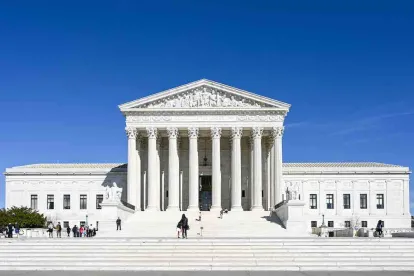Highlights
On March 27, the Supreme Court agreed to consider the following question:
Does a self-appointed Americans with Disabilities Act “tester” have Article III standing to challenge a business’s failure to provide disability accessibility information on its website, even if they lack any intention of visiting that business?
In its latest conference on March 27, the U.S. Supreme Court granted certiorari in one case, Acheson Hotels v. Laufer, which raises the question whether a self-appointed “tester” can bring an Americans with Disabilities Act (ADA) lawsuit against a hotel if the tester has no actual plans to visit the hotel.
The plaintiff, Deborah Laufer, has brought more than 600 ADA lawsuits against hotels across the country, alleging their websites violate an ADA regulation that requires hotels to describe their rooms’ “accessible features.” Without addressing whether the hotel in this case violated this rule, the district court dismissed Laufer’s suit on the ground that she had not suffered a concrete injury and therefore lacked standing under Article III of the Constitution.
Because Laufer admitted she had no plans to visit the hotel, the district court reasoned, she could not possibly be injured by the lack of information on the hotel’s website. On appeal, however, the U.S. Court of Appeals for the First Circuit reversed and reinstated Laufer’s suit, holding that Laufer suffered an “informational” injury. It based that decision on a 1982 decision, Havens Realty Corp. v. Coleman, in which the Supreme Court held that a Fair Housing Act tester had standing to sue an apartment complex for racial discrimination, even though the tester had no intention of actually renting an apartment.
In the hotel’s petition for certiorari, it contended that the First Circuit should instead have distinguished Havens Realty (on the grounds that in Havens Realty the plaintiff encountered personal discrimination and was prevented from renting) and instead applied a 2021 decision, TransUnion LLC v. Ramirez, in which the Supreme Court held that Article III standing rules are not satisfied by an “asserted informational injury that causes no adverse effects.”
Whether the Supreme Court decides to apply Havens Realty, distinguish it, or even overrule it, its decision will have widespread consequences. Tester suits arise in many situations, including discrimination cases (e.g., in the housing, employment, and public-accommodation contexts) and cases involving laws that require entities to post certain notices or provide certain information. Such suits account for thousands of filings each year, and the Supreme Court is now set to decide which, if any, of these sorts of suits Article III permits federal courts to hear.
Argument has not yet been scheduled in the case, but will likely occur during the Court’s October 2023 Term. The Court would then issue its decision on the case by midsummer 2024.





 />i
/>i

